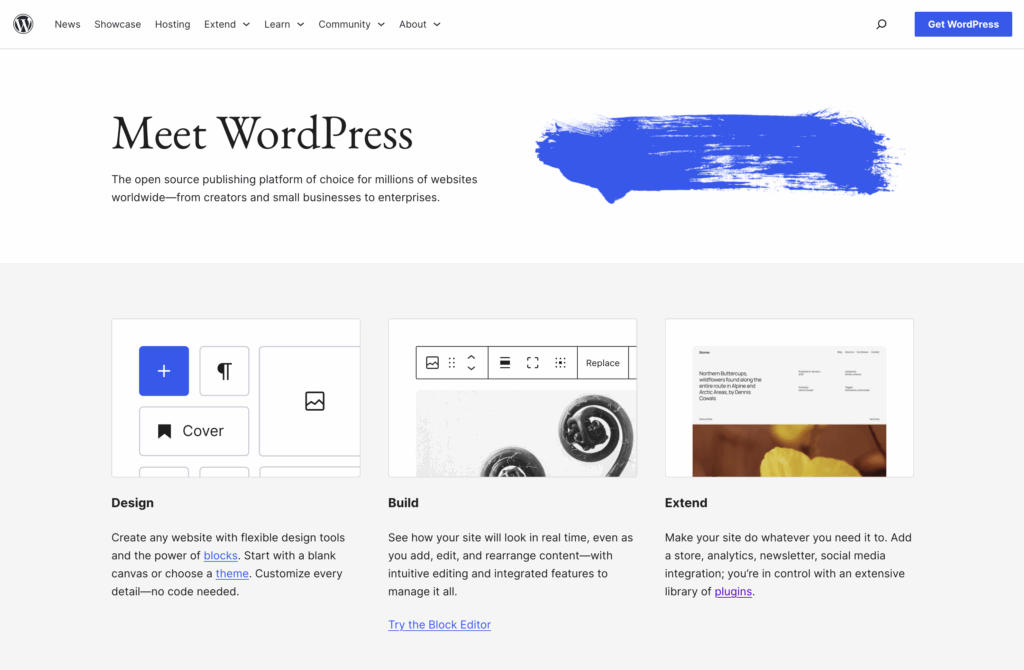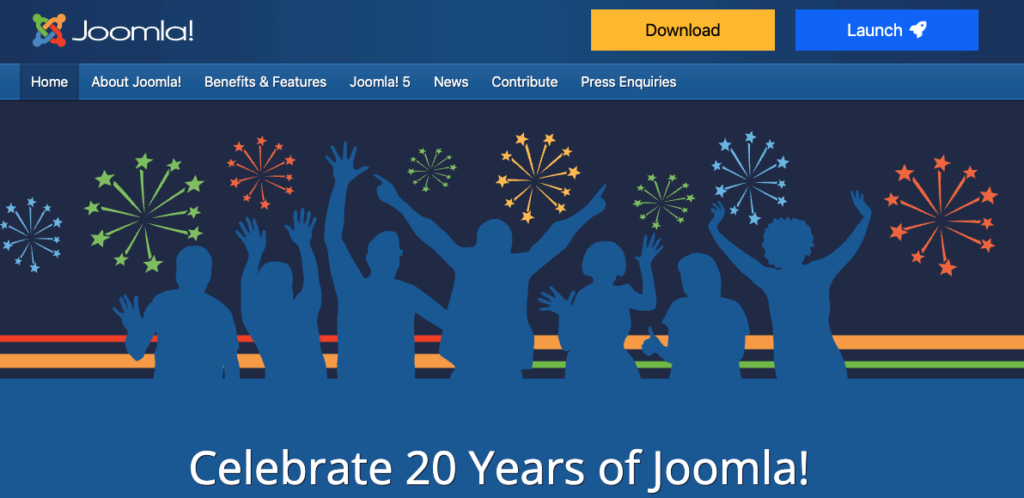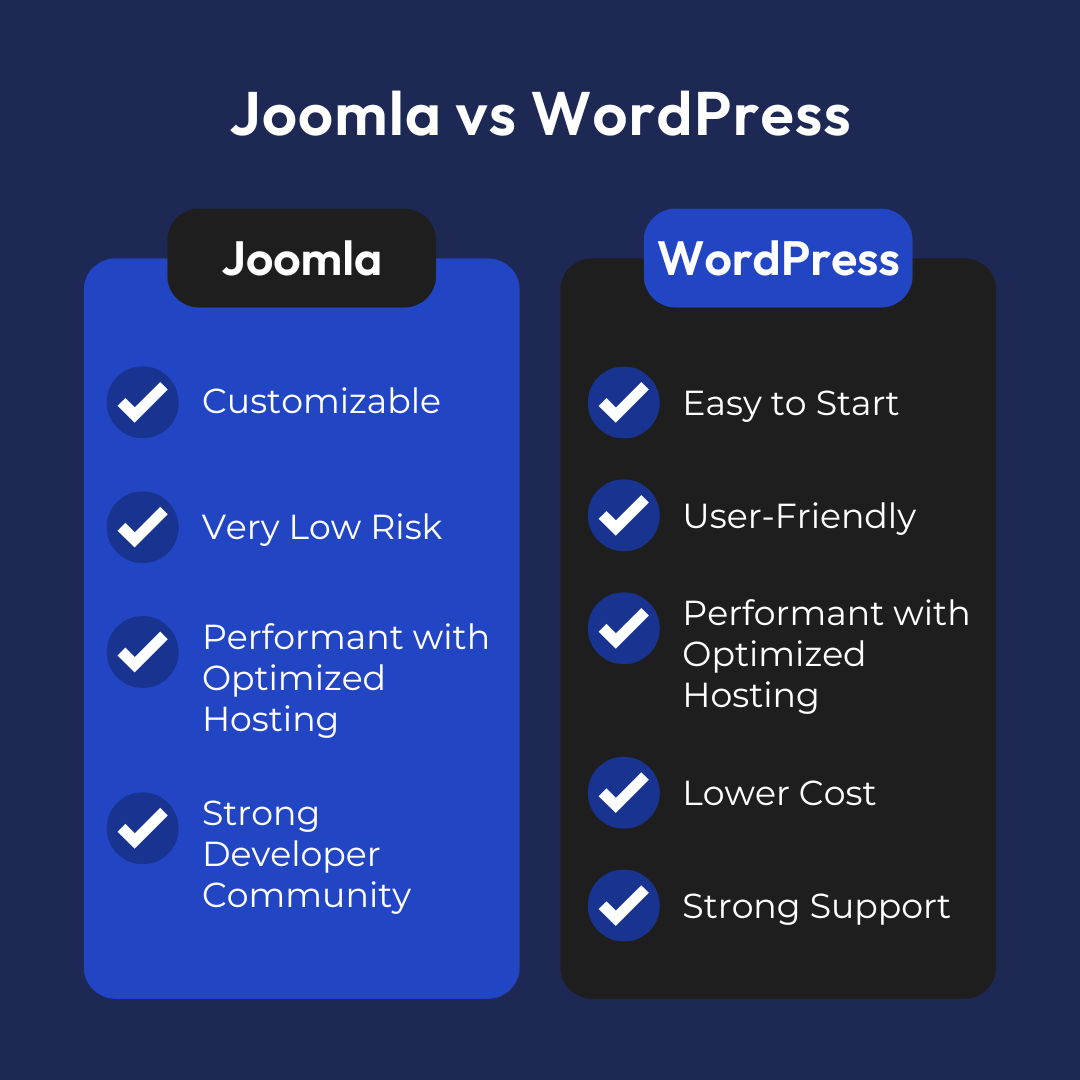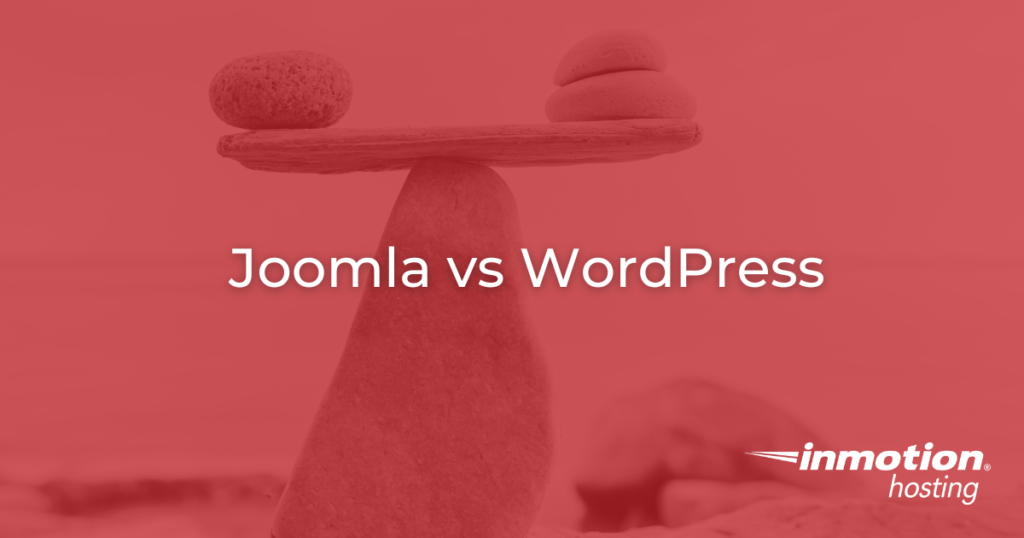Selecting between Joomla vs WordPress comes all the way down to your use case. WordPress is the world’s hottest CMS, recognized for fast setup, ease of use, and an enormous plugin ecosystem. Joomla, whereas much less widespread, delivers stronger built-in customization, multilingual assist, and superior function administration that technical groups worth. Each may be safe, scalable, and high-performing when paired with the appropriate internet hosting. This information breaks down set up, usability, customization, safety, efficiency, Web optimization, neighborhood, and value so you may choose the CMS that really suits your objectives.
Selecting the best content material administration system (CMS) is likely one of the most vital selections you’ll make when constructing an internet site. The CMS you choose influences how briskly your website launches, how straightforward it’s to handle, how safe it’s, and whether or not it scales along with your progress.
Two of essentially the most established open-source platforms are WordPress and Joomla. WordPress dominates international utilization, powering over 43% of all web sites worldwide, whereas Joomla sits at round 2-3% market share. The sheer distinction in adoption usually results in the apparent query: Why would anybody select Joomla when WordPress is so well-liked?
The reply is that every CMS solves totally different issues. WordPress is designed for accessibility, pace to market, and publishing ease. Joomla, whereas much less widespread, gives construction, flexibility, and management that attraction to builders and organizations with advanced wants.
This text breaks down who every platform is for, explores key determination elements like safety, price, customization, efficiency, and ease of use, and attracts on InMotion Internet hosting’s expertise supporting each platforms. By the top, you’ll know which CMS aligns along with your objectives.
Earlier than diving into the side-by-side breakdown, it helps to step again and ask the elemental query: Who’re these platforms actually constructed for? Each Joomla and WordPress have totally different audiences in thoughts, and understanding these audiences will form the way you see the comparisons that comply with. As soon as the “who,” the “why” turns into a lot clearer.
The Core Query: Who Are Joomla and WordPress For?
WordPress
WordPress is the go-to selection for small companies, bloggers, companies, and even giant enterprises that want a simple publishing system. It has a mild studying curve, an infinite plugin ecosystem, and an enormous international neighborhood.

Joomla
Joomla, however, is constructed for many who want fine-grained management. It’s a greater match for multilingual websites, membership platforms, nonprofits, universities, and developer-led groups that need to configure the whole lot instantly relatively than counting on third-party plugins.

Your selection isn’t about which CMS is “higher” in absolute phrases. It’s about which one solves your drawback.
Now that we’ve recognized the audiences, the following step is to have a look at the choice elements that may matter most in real-world conditions. A CMS is extra than simply software program; it’s the way you work together along with your content material on daily basis. Let’s begin on the very starting, putting in the platform.
1. Ease of Set up
One of many first hurdles for any new website proprietor is getting the CMS put in and operating.
WordPress: Almost each internet hosting supplier, together with InMotion Internet hosting, gives one-click WordPress set up. Inside minutes, you may log into your dashboard and begin customizing. This simplicity is one cause WordPress powers over 500 million web sites.
Joomla: Additionally obtainable through one-click installers, however setup can really feel extra concerned. Configuring multilingual websites, person permissions, or advanced menus could require further steps.
Takeaway: In case your precedence is to launch rapidly with minimal setup, WordPress wins. When you’re snug spending extra time upfront to construct a structured website, Joomla is manageable.
Getting your website put in is simply step one. As soon as it’s on-line, you’ll must handle content material and settings on daily basis. That’s the place ease of use is available in, and for a lot of companies, this issue alone can decide long-term success.
2. Ease of Use (Simplicity)
A platform’s ease of use determines how effectively you or your group can handle every day content material updates.
WordPress: Identified for its user-friendly dashboard and Gutenberg block editor. Content material creators can publish blogs, add photos, and optimize for Web optimization with out technical coaching. Newbies usually discover they’ll get productive inside a day.
Joomla: Presents a extra advanced administrative interface with further menus and configuration choices. For newcomers, the terminology (“articles”, “modules”, “elements”) may be complicated. However as soon as discovered, Joomla gives deeper management.
From InMotion Internet hosting’s “Open Supply Central: Joomla 3.1 and Articles”, one vital perception is that Joomla’s “articles” are basically net pages. As soon as customers perceive the lingo, the platform begins to click on. It requires a little bit of persistence, but it surely rewards those that keep it up.
Takeaway: WordPress is right for groups that worth simplicity. Joomla calls for extra upfront studying however pays off with higher flexibility for superior use circumstances.
Ease of use is vital, however most web sites ultimately want options past the fundamentals. That’s the place customization turns into the deciding issue. The power to tailor your website’s look, really feel, and performance separates a superb CMS from an amazing one.
3. Customization & Flexibility
In terms of customization, the actual distinction between platforms is how a lot flexibility you want upfront versus what you may add later. WordPress and Joomla strategy this in very alternative ways, every with its personal strengths and trade-offs.
WordPress:
Presents 59,000+ free plugins and 1000’s of themes.
Nearly any function (eCommerce, Web optimization optimization, memberships) may be added with a plugin.
The draw back is “plugin bloat.” Too many plugins can battle, decelerate your website, or introduce safety dangers.
Joomla:
Takeaway: WordPress wins on breadth of add-ons. Joomla wins in the case of the depth of built-in customization. If you would like fast options, WordPress is less complicated. When you want fine-grained management, Joomla delivers.
Customization is highly effective, but it surely additionally creates dangers if not dealt with fastidiously. That results in one of the vital crucial considerations for any enterprise web site: safety. Each Joomla and WordPress strategy it in another way, and it’s value understanding these trade-offs.
4. Safety
Safety is likely one of the largest elements in selecting a CMS, since a single breach can disrupt enterprise and harm belief. WordPress and Joomla each present strong foundations, however their danger profiles differ primarily based on how extensions and configurations are managed.
WordPress:
Joomla:
Robust built-in entry management system.
Fewer extensions imply fewer third-party dangers, however some research have discovered vulnerabilities in high Joomla extensions, together with cross-site scripting (XSS) and SQL injection dangers.
Takeaway: Each platforms may be safe, however each require energetic administration. WordPress calls for extra vigilance with plugin hygiene. Joomla requires cautious collection of extensions. In each circumstances, internet hosting with actual human assist and superior protections is crucial.
Even when your website is safe, it gained’t succeed if it’s sluggish. Efficiency instantly impacts search rankings, person expertise, and conversion charges. Let’s see how Joomla and WordPress examine in the case of pace and scalability.
5. Efficiency
Efficiency is extra than simply how briskly a web page hundreds; it’s about how effectively a CMS works with the infrastructure behind it. The way in which WordPress and Joomla deal with pace, scalability, and effectivity relies upon closely on the internet hosting surroundings you select.
A CMS is simply as quick as its internet hosting infrastructure.
WordPress: With NVMe-powered internet hosting, caching, and CDN integration, WordPress can scale from a easy weblog to an enterprise website with tens of millions of visits. However poorly optimized plugins can drag efficiency down.
Joomla: Its light-weight core offers it an edge in uncooked effectivity. For big, structured websites, it may be extra performant if configured appropriately.
Takeaway: Efficiency isn’t dictated by CMS selection alone. Infrastructure issues extra. Each Joomla and WordPress thrive when paired with NVMe storage, scalable structure, and proactive assist.
When you’ve addressed efficiency, the following pure query is price. Whereas each CMS platforms are open-source and free, the actual prices present up in internet hosting, improvement time, and add-ons. Let’s break that down.
InMotion Internet hosting gives internet hosting environments tailor-made to ship wonderful efficiency when paired with WordPress. Take a look at our WordPress-focused internet hosting plans linked right here.
6. Value of Possession
Each Joomla and WordPress are free, open-source platforms. Prices come from internet hosting, premium add-ons, and developer time.
WordPress: Decrease entry price. Many free plugins/themes. Nonetheless, managing plugin bloat or hiring builders for troubleshooting can add up.
Joomla: Fewer extension prices, however greater developer time on account of complexity.
Takeaway: WordPress usually prices much less for small companies and startups. Joomla can price extra upfront, but it surely saves cash in the long term for tasks that require construction and fewer third-party dependencies.
Value is a deciding issue, however visibility is equally crucial. A CMS that makes Web optimization tough will maintain your corporation again. Each WordPress and Joomla supply robust capabilities right here, however they take totally different approaches.
7. Web optimization Capabilities
Search visibility could make or break the success of a website, and a CMS performs a key function in how simply your content material will get found. WordPress and Joomla each supply strong Web optimization foundations, however they take totally different paths to get there.
WordPress: Web optimization-friendly out of the field, and plugins like Yoast Web optimization or Rank Math make optimization simple even for rookies.
Joomla: Presents robust Web optimization settings natively however requires extra handbook setup. Metadata, breadcrumbs, and URL rewriting may be configured intimately.
Takeaway: WordPress is beginner-friendly for Web optimization. Joomla is equally succesful within the arms of technical groups.
Even one of the best CMS can’t do the whole lot alone. The scale and exercise of a platform’s neighborhood can decide how simply you discover assist, rent expertise, or troubleshoot points. That makes neighborhood assist one other important issue.
A CMS is less complicated to grasp when you may faucet into the appropriate data base and assist community. WordPress and Joomla each have energetic communities, however they differ in measurement, focus, and the form of make it easier to’ll discover.
WordPress: Largest CMS neighborhood on the planet. Tutorials, companies, freelancers, and documentation are in every single place.
Joomla: Smaller however extremely technical neighborhood. Documentation and boards are robust, however fewer generalist assets.
Takeaway: WordPress gives very in depth neighborhood assist. Joomla gives depth of technical assist.
By now, we’ve in contrast the platforms throughout a very powerful determination elements. However idea solely goes thus far; real-world use circumstances present the place every CMS shines. Let’s have a look at how totally different companies and organizations would possibly select one over the opposite.

Actual-World Use Instances
When WordPress Shines
Content material-Pushed Websites: Blogs, information shops, and advertising and marketing web sites.
Small Companies and Startups: Fast to launch, decrease prices.
eCommerce: WooCommerce dominates the net retailer market.
Companies: Simple handoff to non-technical purchasers.
When Joomla Shines
Multilingual Organizations: Constructed-in assist makes it splendid for international nonprofits or companies.
Membership or Neighborhood Portals: Robust person permissions make it highly effective for universities or associations.
Complicated Data Constructions: Governments, healthcare suppliers, and nonprofits managing a number of content material varieties.
Developer-Led Groups: Technical groups that want hands-on management.
Joomla excels once you need to “do extra with much less,” like customizing layouts with out counting on dozens of third-party plugins, as an illustration.
Actual-world use circumstances give us sensible perception, however generally a direct comparability desk makes issues even clearer. Right here’s a side-by-side view of how every CMS addresses particular enterprise issues.
Facet-by-Facet: Downside to Resolution With Joomla vs WordPress
Tables and comparisons are helpful, however success in the end comes all the way down to how your website is hosted and supported. Let’s step again from the CMS itself and have a look at the function of infrastructure in making certain efficiency, safety, and scalability.
Efficiency, Safety, and Internet hosting Issues
No CMS succeeds and not using a robust basis. At InMotion Internet hosting, we’ve seen each Joomla and WordPress websites underperform when hosted on outdated or underpowered servers. Conversely, each platforms thrive when powered by:
NVMe storage delivers millisecond content material supply.
Superior caching to serve high-traffic websites.
Scalability that grows with your corporation.
24/7 human assist to troubleshoot crucial points.
This displays our model pillars: engineered pace, progress with out limits, accountability you may belief, and actual human assist.
After reviewing all these angles, it’s clear that the “higher” CMS relies upon fully in your use case. However to make the selection simpler, let’s construct a call information you may comply with step-by-step.
Choice Information: How To Select
Outline Your Major Use Case
Content material publishing? WordPress.
Multilingual neighborhood portal? Joomla.
Match Towards Choice Components
Want simplicity? WordPress.
Want construction and permissions? Joomla.
Verify Your Internet hosting Basis
Each want high-performance internet hosting to achieve full potential.
Fast Guidelines:
Are you a newbie? WordPress.
Would you like built-in multilingual assist? Joomla.
Do you want quick publishing instruments? WordPress.
Do you want advanced function administration? Joomla.
At this level, the selection between Joomla and WordPress ought to really feel extra sensible and fewer summary. You’ve seen the strengths, weaknesses, and real-world examples. What stays is a straightforward recap of when to decide on every one.
Conclusion
The talk isn’t about which CMS is “higher.” It’s about which CMS is best for you.
WordPress is right for many who need simplicity, fast deployment, and entry to the biggest ecosystem of plugins and themes.
Joomla is the selection for organizations that want construction, multilingual assist, and developer-level management with out relying closely on third-party plugins.
In each circumstances, your CMS is simply as robust because the internet hosting basis behind it. With high-performance infrastructure, scalability, and dependable human assist, InMotion Internet hosting means that you can develop confidently, whether or not you select WordPress or Joomla.
Energy Your Development with Managed WordPress
Unlock the total potential of your mission-critical WordPress website with scalable, purpose-built servers. Give your web site the efficiency, safety, and assist it must succeed – so you may give attention to rising your corporation.
Scalable Cloud Servers
Superior Safety
Managed Updates
Skilled Assist
Managed WordPress Internet hosting




